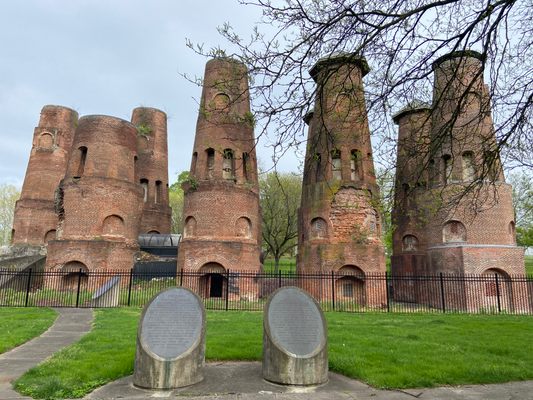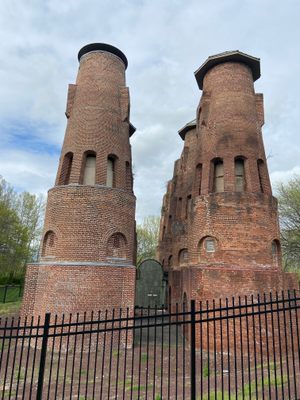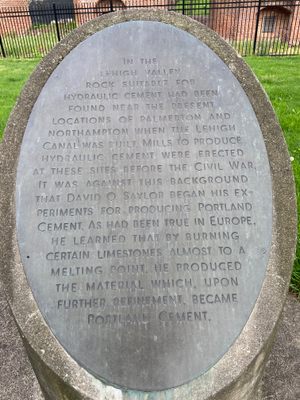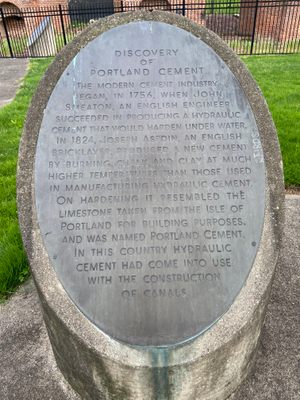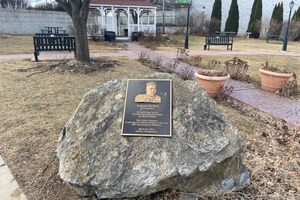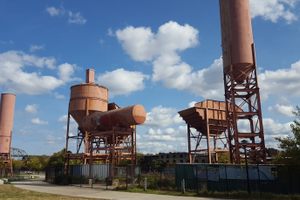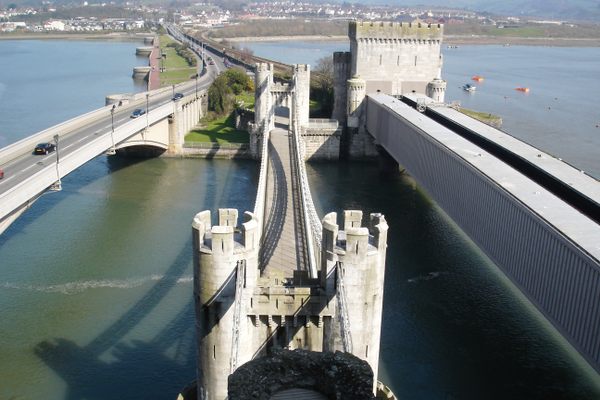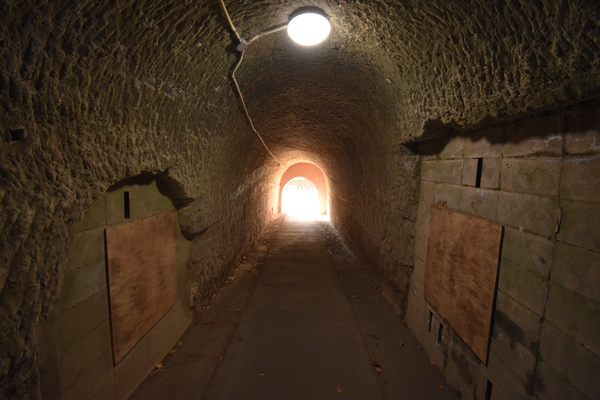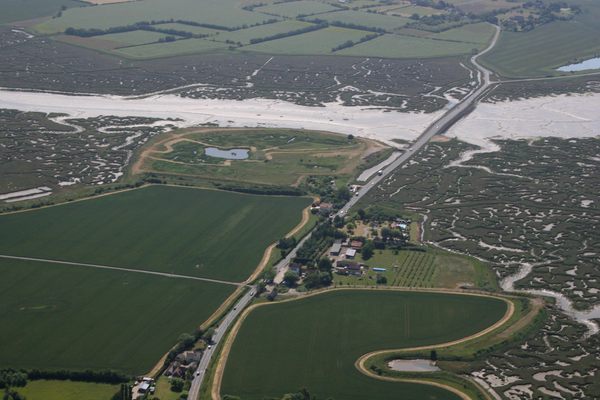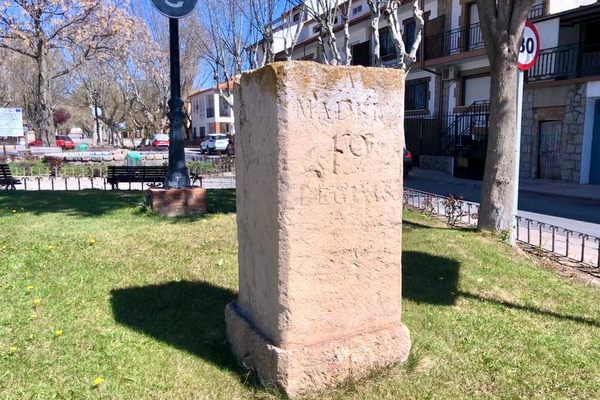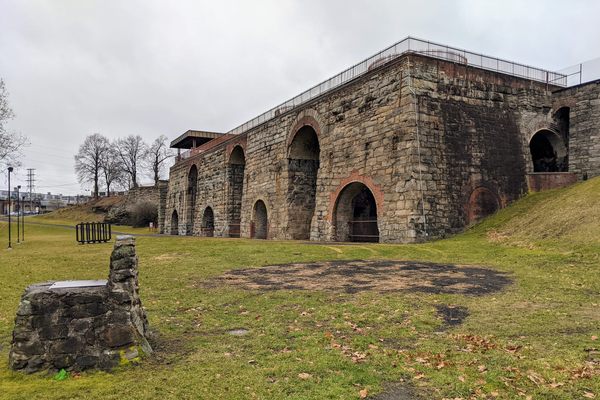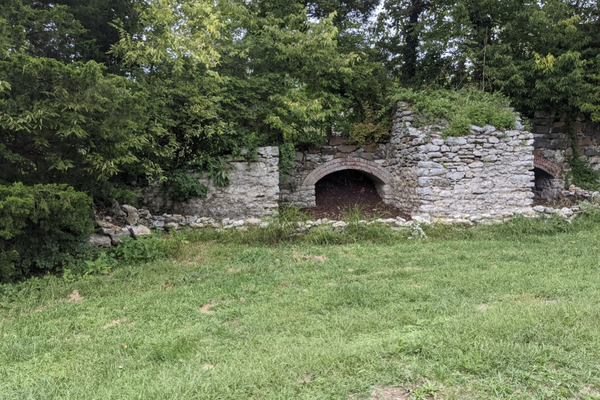About
Built-in 1892, the Coplay Cement Company Kilns were nine kilns used for the production of Portland cement. They were shut down in 1904 and donated to Lehigh County in 1975. The kilns are Schoefer kilns, which were popular at the time of construction.
The first kiln at the Coplay Cement Company was a dome kiln. Dome kilns were inefficient and had to shut down often. In 1893, Coplay Cement built Mill B containing the Schoefer kilns standing today. Originally enclosed in a large building, Schoefer kilns could run continuously. Soon, however, even more efficient rotary kilns came into use. Mill B's outdated Schoefer kilns shut down in 1904.
Now a part of the Lehigh County Historical Society, the kilns were recognized by the National Register of Historic Palaces in 1980. The kilns are a part of the Saylor Cement Museum, which is named after David Saylor, the father of Portland cement. In 1871, Saylor received the first American patent for Portland cement.
Lehigh County was a natural spot for cement production. Cement is made from rocks containing lime, silica, and alumina; Lehigh County limestone “cement rock” contains all three ingredients. By 1900, the Lehigh Valley made 72% of Portland cement produced in this country.
Related Tags
Published
May 15, 2023
